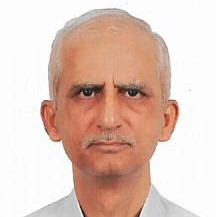Introduction:
While modern medicine has made great strides, in terms of health care of the population the diagnosis and treatment of diseases has become more complex and expensive while the disease burden remains high.
There is a lesson to be learnt from the many alternative systems of medicine, which consider mind-body-spirit as an integrated whole.1 Because of their simplicity and demonstrated efficacy, these wholistic systems have become increasingly popular throughout the world. There is a general perception among academic circles that modern medicine complimented with alternative systems of medicine has therapeutic benefits. However the reason why the wholistic systems work has not been enquired into.
The focus of this article is to show that there is enough scientific evidence for the presence of a spiritual dimension to the human structure and function, which accounts for the apparent success of "mind-body-spirit' systems of medicine. The spiritual dimension when understood and harnessed has far reaching implications on how modern medicine is taught and on the way diseases are managed.
What is Health?
The World Health Organization has defined health as a state of complete physical, mental and social wellbeing, and not merely the absence of disease or infirmity. Some people do enjoy such a state of complete wellbeing. Their life is in harmony with themselves as well as the world around them. They feel contentment and enjoy peace; they understand problems pertaining to themselves as well as the world around them and are inclined to solve them. This is the state of spiritual wellbeing, which can be felt and enjoyed but is difficult to be expressed in words. The state of complete physical, mental and social wellbeing referred to by the WHO, in reality implies an all-encompassing spiritual dimension perceivable by the individual.
Spiritual Dimension:
Modern medicine is based on objective evidence. The physician makes use of knowledge based on the truth of science. The feeling of spiritual wellbeing is subjective truth, which is equally true from the physician's point of view. The epistemology or the grounds of knowledge may be different, yet it makes no difference from the point of view of application of that knowledge. While modern medicine offers solutions to problems affecting the tangible dimensions, due to epistemological reasons it is unable to consider health in its totality, which includes the spiritual dimension. It is left to the individual physician to grasp this subjective truth and suggest remedies to problems viewed best from this perspective. The emergence of stress-related diseases as a major problem in recent times has focused attention on the spiritual dimension.2
The Basis for Spiritual Wellbeing:
If spiritual dimension of health is a fact then there should be a basis for it, just as body has matter as its basis and the mind has thought as its basis. The basis for spiritual dimension is a subtle faculty within us called Spiritual Intelligence. While cognitive intelligence (IQ) is about "thinking' and emotional intelligence (EQ) is about "feeling', spiritual intelligence (SQ) is about "being'.3 Acquiring an integrated view of oneself and the environment is necessary for the individual's feeling of contentment or the bliss of "being'. This bliss of "being' may be termed as spiritual bliss to distinguish it from sensory bliss or bliss related to the senses.
Spiritual intelligence comes into play whenever the individual dwells on his 'self' or "the individual's perceived reality', a process that happens on and off and underlies our consciousness. The "inner self' (also called "pure consciousness' or "Self') is reached and experienced as pure bliss in deep sleep. While the "self' perceives duality and is subject to a variety of feelings, the "inner self' perceives unity and experiences pure bliss. Once this core reality of blissful "being' is reached, all information in a person's life is reconciled around it. A person waking up after a good deep sleep feels refreshed and blissful. This feeling of pure bliss fades once the individual starts perceiving the world of duality. Shortfall in the process of reconciliation around the core of pure bliss, results in stress or absence of spiritual wellbeing.
Maintaining Spiritual Wellbeing:




